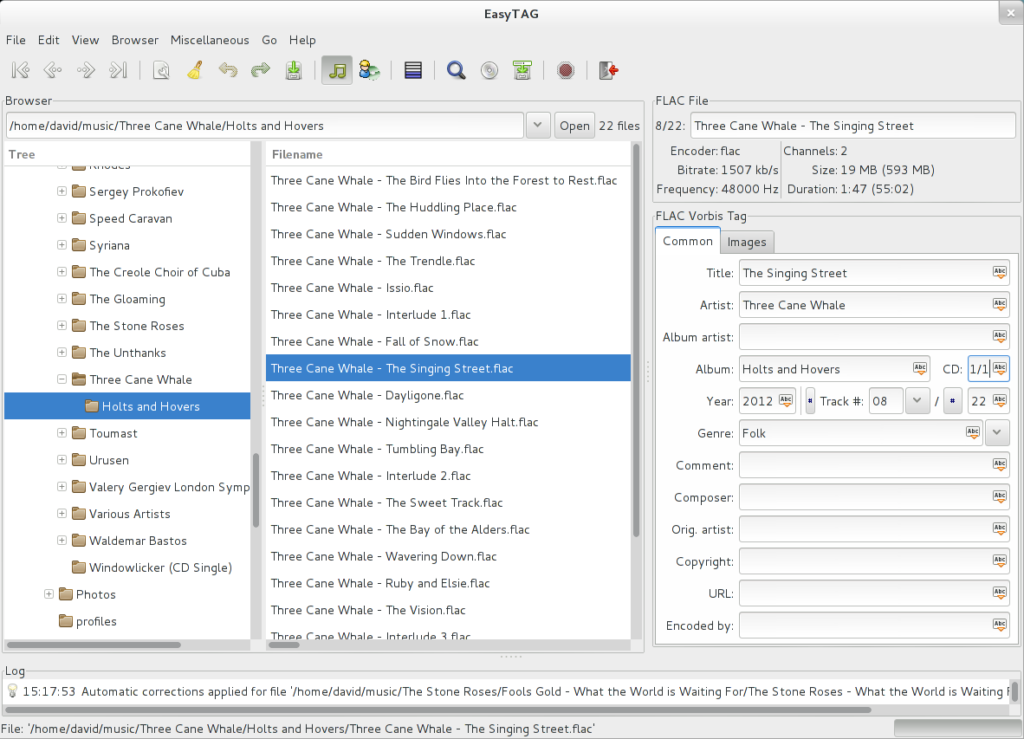Audio files in formats such as MP3, AAC, and Ogg Vorbis have made music ubiquitous and portable. With the explosive growth of storage capacity, you can store huge libraries of music. But how do you keep all that music organized? Just tag your music. Then you can access it easily locally and in the cloud. EasyTAG is a great choice for tagging music and is available in openSUSE.
Many audio file types support tagging, including:
- MP4, MP3, MP3, MP2
- Ogg Speex, Ogg Vorbis, Ogg Opus
- FLAC
- MusePack
- Monkey Audio
Installing EasyTAG
EasyTAG is easy to install from openSUSE repositories:
Or use Zypper in a terminal as Root:
# zypper install easytag
Then launch the program from the Software tool or the application menu for your desktop. EasyTAG’s straightforward interface works well in most desktop environments.
Tagging music
Select a folder where you have music you want to tag. By default, EasyTAG will also load subfolders. You can select each file and add tag information such as the artist, title, year, and so on. You can also add images to a file in JPG or PNG format, which most players understand.
Files you have altered appear in bold in the file listing. To save each, press Ctrl+S. You can also select the entire list and use Ctrl+Shift+S to save all the files at once.
One of the most powerful features of EasyTAG is the file scanner. The scanner recognizes patterns based on a template you provide. Once you provide the right template and scan files, EasyTAG automatically tags all of them for you. Then you can save them in bulk. This saves a lot of time and frustration when dealing with large libraries.
When you upload your tagged files to a cloud service, your tags allow you to quickly find and play the music you want anytime.
This article is an adaption of EasyTAG: Organize your music on Fedora under Creative Commons License.

